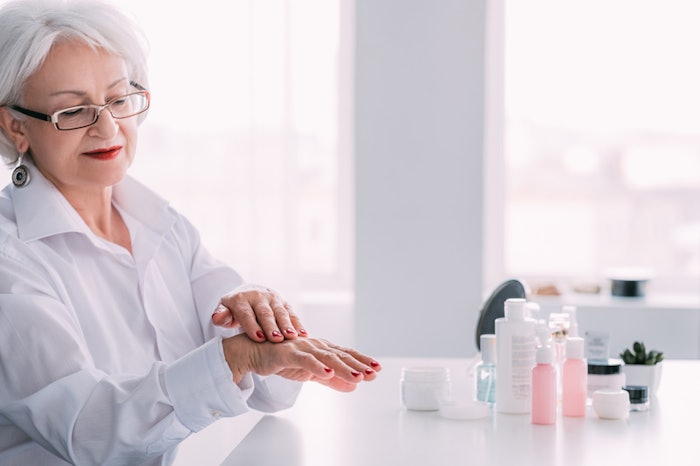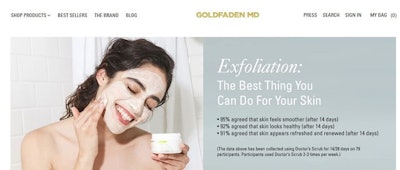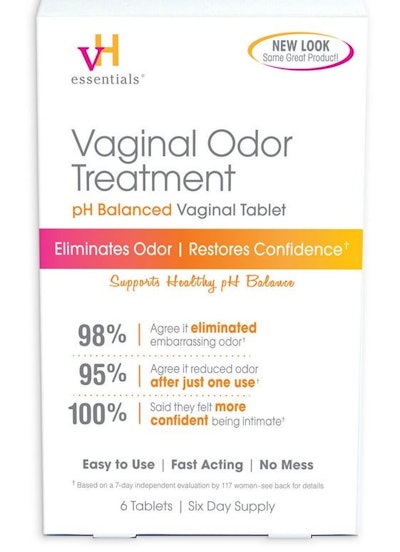
The pressure is on to bring breakthrough cosmetics to market fast. With same-day delivery expectations and aspirations of overnight results, the product-development cycle has shrunk substantially to make magic happen for consumers sooner.
Where product development was once a year-long endeavor, it’s now a matter of months at best for many products to be conceived, safety-tested and introduced to consumers amid a fiercely competitive market.
But where’s the proof that your products really work? Consumers demand evidence from “women like me” in the form of consumer claims and product reviews before they’ll part with their hard-earned dollars.
More Benchmarking Company data: Consumers' Sustainable Beauty Attitudes
But how reliable is that proof?
Only 18% of claims in cosmetics commercials are believable, according to an article in Time.com that highlighted the work of researchers who assessed 289 cosmetic, skin care and fragrance ads in consumer magazines like Vogue and Marie Claire. The researchers cited “questionable methodologies” for those who back the claims using suspect methodologies for substantiation.
That article appeared some years ago, but the same can be asked today: Are today’s cosmetics claims truly substantiated, or are they just buzzwords to trip the triggers of proof-seeking consumers?
Shoppers Care About Consumer Testing
A survey of 3,447 U.S. beauty and personal care consumers conducted by The Benchmarking Company in February 2022 found that:
- 97%a said brands should conduct consumer perception testing by an independent third-party research firm to demonstrate truth in advertising.
- 86% said they would be more likely to shop specific retailers that require consumer claims testing for products they carry.
- 91% would be more likely to purchase a product if research results were visible to them (i.e., product pages, packaging, point of sale).
- nearly ⅔ of beauty and personal care consumers said they would likely join a class action suit against a brand for false advertising if they bought a product that did not live up to its claims.
Claims Substantiation through IHUTs
Consumer perception testing, or consumer in-home use testing (IHUT), provides the proof consumers need before they’ll buy in the form of substantiated claims. IHUTs involve sending either a prototype or a product that is conditionally approved for in-market commercialization and has undergone safety and stability testing to a defined panel of targeted nationally representative consumers.
This panel uses the products according to specific protocols and then assesses their experiences with the products at various time intervals.
IHUT testing reveals powerful hero claims, as well as emotional connections to products and brands, which is a valuable tool for any marketing team.
In addition to now substantiated claims that were conducted by a third-party independent research firm, IHUTs provide brands with verified user testimonials and claims that may be used in critical marketing initiatives—social, packaging, ads, on air, point of sale, retail pitches and elsewhere.
IHUTs can be used to garner claims and assess likeability/receptiveness among consumers primarily for new product launches. Claims testing is often the last step in the product-development process prior to launch as a way to verify consumer acceptance, adjust formulations, and possibly avoid making a multimillion-dollar mistake should the IHUT not yield stellar results.
IHUTs are routinely used for new product launches, but are also useful for many situations, including:
- Prototype/pilot sensorial tests
- New formulations of current SKUs
- New SKU formulations versus current formulations
- Bringing an old SKU back to life with updated claims
- Regimen claims
- Competitive claims
- Fragrance preference
- Usage-instruction efficacy
- Bolstering clinical test results
The types of products that should be tested span the full gamut of beauty and personal care for all genders.
Categories include facial, bath and body skin care; hair care, hair coloring, styling and tools; over-the-counter/medical devices; makeup; supplements and wellness products; nail care; men’s grooming; intimate care; personal care products; troubled skin-specific products for acne and other skin states; and with most any ingredient profile, including retinols and CBD.
Unsubstantiated Claims are Risky
Mitigating the risk of false claims is paramount to the claims-substantiation process. Fines and legal action from the FDA, FTC or National Advertising Division can pose a significant threat to businesses that either tout false claims (without any substantiation) or to those brands that go about the claims process in the wrong way.
Here are ways to ensure your claims-substantiation process passes muster:
Independent Research Firm Needed
Your IHUTs should be conducted by an independent third-party research firm that specializes in beauty and personal care consumer research. That means claims cannot be tested by employees of the brand, the brand’s database of prospects and buyers, or the brand employees’ friends. Avoid testing with “influencers” or formulators that dabble in IHUTs to avoid all possible conflicts of interest.
Use a firm that follows strict international testing standards so your claims won’t lose potential challenges should a competitor make them. Ask if your IHUT firm has ever been involved in a challenge and if their results held up successfully to legal scrutiny.
If you want claims that will hold up against legal and regulatory scrutiny, make sure you are working with a third-party research firm that is truly independent from other aspects of your product-development cycle.
Nationwide Reach
Your IHUT firm should have a nationwide pool of testers so your product’s panel accurately reflects future buyers in every conceivable way. An appropriately sized panel (more than 35 consumers and up to 500) helps to ensure statistically significant results.
Do you need 110 panelists of South Asian descent between the ages of 35-55, with dry skin, that have a household income of more than $80,000 and who regularly shop at Sephora? If your firm cannot recruit for a panel to meet your exact needs, move on.
Experts Know the Right Language for Every Audience
FTC warning letters and fines to beauty brands have increased more than 300% in recent years. Your IHUT firm should guide your brand through the claims process by suggesting claims verbiage that is appropriate for the classification of your product.
Cosmetics claims should not make structure/function claims. (More on this in the next article installment.)
OTC products have certain leeway for claims, depending on the ingredients stated in the FDA monograph. Medical devices have their own set of regulations that must be considered. Your IHUT firm should be experts in preparing claims that will pass any regulator’s desk without a second thought.
Claims that will appear on QVC or HSN have certain nuances that should not be overlooked.
Know the Benchmarks
A knowledgeable, independent IHUT research firm should be able to show your brand exactly how your IHUT claims scores stacked up against scores from similar products tested from a vast number of brands. Is “94% agree” a good score for a claim of “hair looking fuller”? Is “75% agree” acceptable for a claim of “fine lines and wrinkles appear diminished”? Your IHUT firm should be able to tell your brand unequivocally.
IHUT Outcomes
At the end of the day, brands will want to tout great claims, video testimonials and written testimonials derived from every self-assessment interval of their product’s IHUT. Here are just a few examples.
 IHUTs provide brands with verified user testimonials and claims that may be used in critical marketing initiatives—social, packaging, ads, on air, point of sale, retail pitches and elsewhere.
IHUTs provide brands with verified user testimonials and claims that may be used in critical marketing initiatives—social, packaging, ads, on air, point of sale, retail pitches and elsewhere.
 If you want claims that will hold up against legal and regulatory scrutiny, make sure you are working with a third-party research firm that is truly independent from other aspects of your product-development cycle.
If you want claims that will hold up against legal and regulatory scrutiny, make sure you are working with a third-party research firm that is truly independent from other aspects of your product-development cycle.
Up Next: Part 2
In Part 2 of our IHUT series, we’ll dive deep into claims regulations, why they matter, pitfalls to avoid, and advice from both attorneys and brands that have been there.
Based in sun-seared San Diego, Denise Herich is co-founder and managing partner at The Benchmarking Company. The company provides marketing and strategy professionals in the beauty and personal care industries with need-to-know information about its customers and prospects through custom consumer research studies, focus groups and consumer in-home use testing (IHUT) for marketing claims and risk mitigation. www.benchmarkingcompany.com
aAll call-outs in bold represent data from The Benchmarking Company’s survey of 3,447 U.S. beauty and personal care consumers, February 2022.










